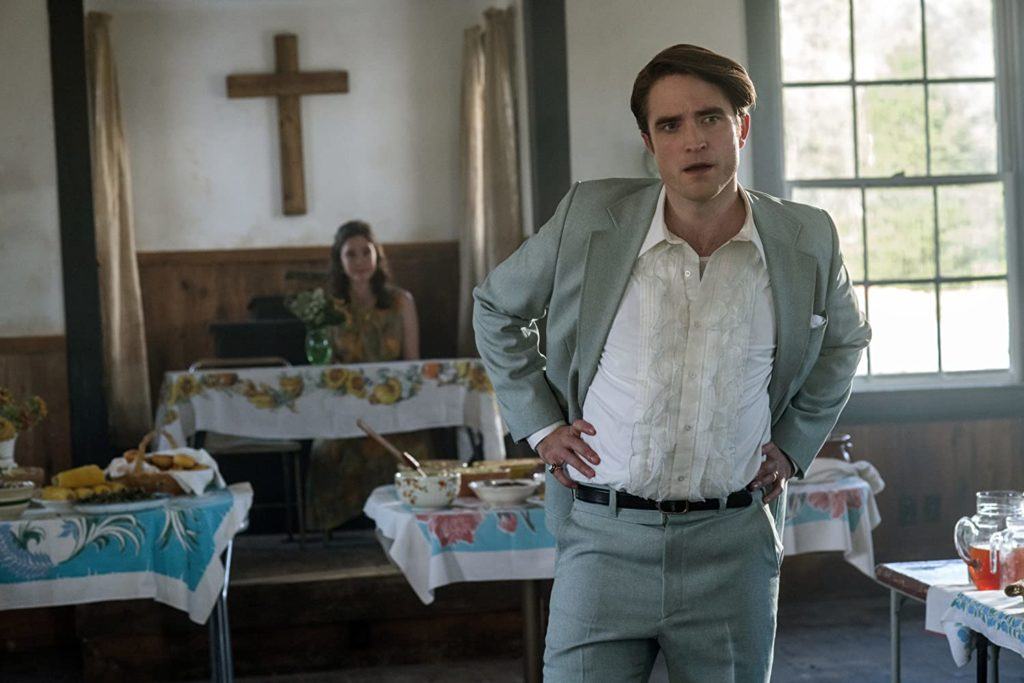The Devil All the Time

Robert Pattinson stars in THE DEVIL ALL THE TIME. (Photo: Netflix)
Beneath the halcyon quaintness of its small-town setting, The Devil All the Time spotlights a legacy of tragedy and despair.
This stylish and evocative period drama about the link between spiritual fanaticism and a cycle of brutality is the sort of sprawling intergenerational saga that might have played better as an episodic series. Yet an immersive sense of time and place, along with richly textured performances from a first-rate ensemble cast, keep it consistently compelling.
Starting in the 1950s, the collection of overlapping stories spans almost two decades in a pair of working-class Ohio and West Virginia towns separated by just 30 miles.
The closest we get to a sympathetic character is Arvin (Tom Holland), whose violent tendencies stem from a traumatic childhood that turned him from a believer into a skeptic. That’s primarily because of his abusive father (Bill Skarsgard) and his intense prayer sessions at their homemade “prayer log.”
After growing up a temperamental orphan, Arvin later crosses paths with a variety of troubled lowlifes, including a charismatic young preacher (Robert Pattinson) who automatically earns the townsfolk’s blind trust as an authority figure; a photographer (Jason Clarke) and his alluring wife (Riley Keough) with sinister motives for luring hitchhikers; and a corrupt lawman (Sebastian Stan) more concerned with his political ambitions than serving justice.
Along the way, we’re guided by an unassuming omniscient narrator (Donald Ray Pollock, who also authored the novel upon which the film is based), helping to provide clarity while the story jumps around.
Serenaded by a soundtrack of vintage country-gospel hits, The Devil All the Time creates some intriguing character dynamics — from Pattinson’s scenery-chewing flamboyance to Holland’s understated portrayal of pent-up rage — even if you want to nitpick the backwoods accents.
The noir-infused screenplay co-written by director Antonio Campos (Christine) is a provocative study of religion as a coping mechanism during times of war and socioeconomic strife. While it could use a tighter focus and a greater sense of dramatic urgency, the film deserves credit for not simply dismissing its characters as Appalachian hillbilly weirdos.
It’s challenging to find hope amid the persistent grief and misguided zealotry, and difficult to locate a rooting interest amid this collection of sinners and scoundrels. Yet at its core, this coming-of-age story of faith, family, and forgiveness resonates with emotional conviction.
Rated R, 138 minutes.